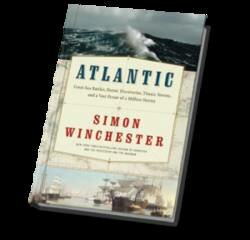 About half of Oliver Sacks' The Mind's Eye is precisely what you've come to expect from the physician and professor of neurology and psychiatry: firsthand case studies of people facing unusual neurological obstacles, delivered by a kindly, curious observer.
About half of Oliver Sacks' The Mind's Eye is precisely what you've come to expect from the physician and professor of neurology and psychiatry: firsthand case studies of people facing unusual neurological obstacles, delivered by a kindly, curious observer.
A pianist has a degenerative condition that is slowly robbing her of the ability to read music (or anything else), another is stricken by aphasia following surgery to remove a blood clot. An author has a sudden stroke and loses his ability to read and remember much, but compensates by learning to read with his tongue; somehow, tracing the shape of letters with his tongue results in comprehension of the word he's spelled. If you're a long-time Sacks reader, you may find yourself learning less about neurology than the surprising amount of coping skills that people can marshal in these instances.
But in chapters titled "Face-Blind" and "Stereo Sue," more about Sacks himself creeps into the narrative. "I have had difficult recognizing faces for as long as I can remember," writes Sacks, admitting to what's known as prosopagnosia. "...I think that a significant part of what is variously called my 'shyness,' my 'reclusiveness,' my 'social ineptitude,' my 'eccentricity,' even my 'Asperger's Syndrome," is a consequence and misinterpretation of my difficulty recognizing faces."
As it turns out, there's a broad range of face recognition ability; at one end of the spectrum are people who can recognize the person who served them coffee once three years ago when they pass them on the street, and at the other are people who mistake their wife's head for a hat.
In telling the story of Sue Barry, the woman who against all expectation gained stereo vision, Sacks details his own lifelong fascination with stereo viewers (he was a member of the New York Stereoscopic Society). So it's with some upset, turning the pages of "Persistence of Vision" that you discover (along with Sacks, it's written as excerpts from his diary) that the author has an ocular melanoma, a millimeter from the fovea.
All at once, the guiding, imperturbable physician becomes a typical basketcase patient, fighting against mood swings and dark prognoses, full of anger and regrets. When a laser treatment removes his stereo vision, you feel it keenly. And by page 200, you have a much greater sense of what coping skills can and can't accomplish. As Sacks' vision is not expected to much improve--the reverse is true, in fact--his final chapter on blindness and the "mind's eye" is doubly poignant.
 Since I'd briefly put down Simon Winchester's Atlantic: Great Sea Battles, Heroic Discoveries, Titanic Storms, and a Vast Ocean of a Million Stories to read from Mind's Eye, it was funny to see him pop up in Sacks' book on page 165.
Since I'd briefly put down Simon Winchester's Atlantic: Great Sea Battles, Heroic Discoveries, Titanic Storms, and a Vast Ocean of a Million Stories to read from Mind's Eye, it was funny to see him pop up in Sacks' book on page 165.
Convalescing after his eye surgery, Sacks puts down in his diary: "Have just written to Simon Winchester, telling him how much pleasure I have got from listening to the audiotape of his book Outposts. [...] I have been a reader all my life, and am not fond of being read to, on the whole. The Simon Winchester was a pleasant exception to the rule." (You, too, can listen to some Winchester audio here.)
The pleasure of reading Winchester, a British geologist turned journalist and author, is remarked upon widely. The preface to Atlantic is positively Dickensian in its portentous yet conversational tone: "The ocean romance that lies at the heart of this book was primed for me by an unanticipated but unforgettable small incident. It was a clear cool dawn on Sunday, May 5, 1963, and I was eighteen years old. I was alone, on passage aboard a great ocean liner...."
The rest of the book, which charts the Atlantic's history from "The Beginnings of its Goings On" to "Falls the Shadow, Fades the Sea," is almost never anything less than entrancing in its erudition, historical sweep, and retailing of maritime yarns. A glossary of "possibly" unfamiliar terms includes bollard, curragh, cyanobacteria, hammada, loxodrome, pelagic, quinquereme, snood, and taffrail. There are more terms you'll have to look up on your own, as well.
Confronted with the vast eras of time an ocean's lifespan encompasses, one of Winchester's most troublesome tasks was trying to find a way to organize the book so that he could consider days and epochs in its pages without giving the reader whiplash. His solution should delight English majors, if nothing else, because he builds his biography of the Atlantic around Shakespeare's seven stages of life, from the As You Like It monologue that begins, "At first the infant, mewling and puking in the nurse's arms...," and ends with "second childishness and mere oblivion; sans teeth, sans eyes, sans taste, sans everything."
While Winchester doesn't stint on the long, geologic view ("The final moment of the Atlantic's existence will come in about 170 million years"), his primary concern is with the relationship of humans with the ocean, from the early Phoenician sailors of the African coast to the Norsemen and Irish who put to sea (thus the curragh in the glossary). You learn about the golden age of Atlantic of cartography (including Benjamin Franklin's mapping of the Gulf Stream for the benefit of the postal service), and trade and piracy, slaveships and windjammers. There are mighty naval battles and whaling fleets and telegraph cables stretched across the deeps.
Too soon, Winchester recounts how the British government dumped almost thirty thousand tons of highly radioactive waste into the Atlantic at "a specially selected site four hundred miles west of Land's End," and how a ocean-wide contamination (mercury, PCBs, cyanide, pharmaceuticals) has since occurred. And of course there's the vicious toll that industrial fishing has taken, and last but not least, climate change.
Interspersed throughout all of this are journalistic touchdowns that dispel any mustiness of history. These enter early on, with a visit to the island of Mykines in the Faroe archipelago:
I was sitting on the cliff edge, my legs dangling over half a mile of emptiness. I was facing due west. Just below me were clouds of seabirds, the gannets and fulmars, kittiwakes and storm petrels, and beside me were the chattering congregations of puffins. Ahead of me there was just nothing--just an endless, crawling sea, hammered like copper in the warm sunshine, and stretching far, fifty miles, a hundred....
Later, during his recounting of the Falklands war, Winchester details his own imprisonment as a suspected spy, and how his captor looked him up years later to apologize for his delight in telling Winchester about the sinking of the Sheffield, having breached an unspoken sailor's code. These are things that only Winchester can tell you, as in the epilogue, when he describes his visit to the place a cargo carrier wrecked off Skeleton Coast in 1942, with a crew of 64 and 21 passengers. The remnants of the wreck, when Winchester finds them, are rusting and sinking in sand. "Beyond the breakers, the green Atlantic growled on, restless and eternal."
-
Simon Winchester appears at Town Hall at 7:30 p.m. on November 17.
 Subscribe to our Front Page Stories
Subscribe to our Front Page Stories
![]() Subscribe to all SunBreak Stories
Subscribe to all SunBreak Stories



Most Recent Comments